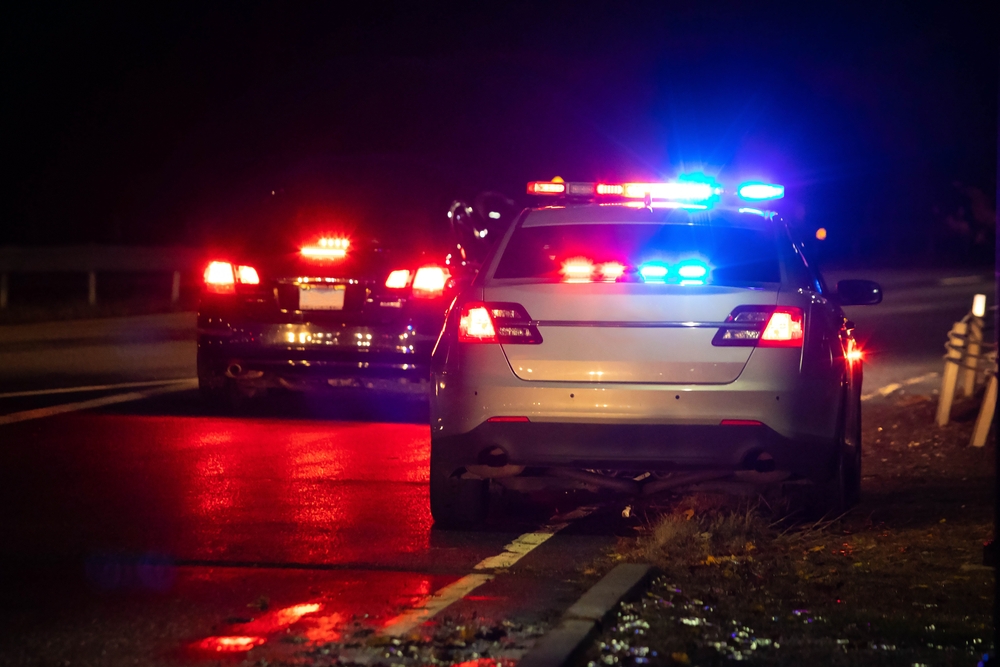
If you've ever felt that sinking feeling when you see flashing blue and red lights in your rearview mirror, you know how overwhelming a traffic ticket can be. In Pennsylvania, like many states, a traffic violation can lead to severe consequences, from monetary fines to potential license suspension. For many, the process of handling a traffic ticket can be confusing and intimidating. The team at Muckler Law is here to help. This guide aims to shed light on the complex world of traffic tickets in Pennsylvania, helping you make informed decisions about your situation.
Common Types of Traffic Violations
Pennsylvania has a long list of traffic violations, ranging from minor to serious. Here are some of the most common:
- Speeding: This is perhaps the most common traffic violation. It occurs when a driver exceeds the posted speed limit for a particular road or area.
- Running Red Lights and Stop Signs: Failure to stop at a red traffic light or stop sign can lead to serious accidents; hence, it's considered a significant violation in many jurisdictions.
- Driving Under the Influence (DUI) or Driving While Intoxicated (DWI): Operating a vehicle after consuming alcohol or drugs above the legal limit is a severe offense in many countries. Penalties can include hefty fines, license suspensions, mandatory classes, and even jail time.
- Failure to Signal: Not using turn signals when changing lanes or turning can be dangerous for other road users.
- Reckless Driving: This refers to any driving behavior that disregards the safety and well-being of others, such as aggressive driving or excessive lane changing without signaling.
- Driving Without a Valid Driver's License: Operating a vehicle without a current and valid license is illegal.
- Driving Without Insurance: In many jurisdictions, it's mandatory to have at least a minimum amount of vehicle insurance. Driving without it can lead to penalties.
- Seatbelt Violations: In many areas, wearing seat belts is compulsory for drivers and passengers. Failure to wear one can result in fines.
- Distracted Driving: With the rise of smartphones, distracted driving, especially texting while driving, has become a significant concern. It's illegal in many places to use a mobile phone while driving without a hands-free system.
- Parking Violations: This includes parking in no-parking zones, in front of fire hydrants, in handicapped spaces without a permit, or overstaying metered parking.
- Tailgating: Driving too closely to the vehicle in front can be dangerous and is considered a violation in many places.
- Improper Lane Changes or Lane Usage: This can include not maintaining a single lane, not using designated lanes correctly (like carpool lanes), or making unsafe lane changes.
- Expired Registration: Driving a vehicle with an expired registration tag can lead to fines and the potential impounding of the vehicle.
- Equipment Violations: These can include things like malfunctioning brake lights, loud exhaust systems, or tinted windows that exceed local regulations.
- Illegal U-Turns: Making a U-turn where it's prohibited by signs or road markings.
It's essential for drivers to be aware of and understand local traffic laws wherever they are driving. Violations can lead to fines, points on a driver's license, increased insurance rates, and even legal proceedings in more severe cases.
Consequences of Traffic Tickets
- Monetary Fines: This is the most immediate consequence of a traffic ticket. Depending on the severity of the violation, fines can range from a nominal fee to thousands of dollars.
- Points on Your License: Many states and jurisdictions use a point system to track drivers' behavior. Under the Pennsylvania points system, different violations carry different point values. As points accumulate, drivers may face additional penalties.
- Increased Insurance Premiums: Insurance companies view drivers with traffic violations as higher risks. As a result, your car insurance rates may rise after a violation.
- Traffic School: Some jurisdictions may require or offer the option for drivers to attend a traffic school or defensive driving course to reduce or dismiss a ticket or to prevent points from being added to their license.
- License Suspension or Revocation: Severe violations or an accumulation of many minor violations can lead to the suspension or revocation of your driving privileges.
- Warrants for Arrest: If you fail to pay a traffic ticket fine or don't appear in court when required, a judge might issue a warrant for your arrest.
- Towing or Impoundment of Vehicle: In certain situations, like driving without a valid license or with expired registration, law enforcement may have the authority to tow and impound your vehicle.
- Criminal Charges: Serious traffic offenses, such as DUI, hit-and-runs, or vehicular homicide, can lead to criminal charges, which come with more severe penalties, including potential imprisonment.
- Employment Consequences: For those whose employment requires a clean driving record or the need to operate company vehicles, traffic violations might impact their job status or future job opportunities.
- Reinstatement Fees: If your license gets suspended, you'll often have to pay a fee to have it reinstated once the suspension period is over.
- Probation: In some cases, drivers may be put on probation, especially after serious violations. Breaking the terms of probation can result in further consequences.
- Civil Liability: If a traffic violation results in damage to property or injury to someone, the violator might be held liable in a civil lawsuit.
- Permanent Record: Traffic violations can stay on your driving record for years, affecting everything from insurance rates to employment opportunities.
It's essential to understand these potential consequences and take traffic tickets seriously. If faced with a ticket, it's often beneficial to consult with a legal professional to understand the ramifications fully and to explore potential avenues for defense or reduction of penalties.
How a Lawyer Can Help
Having professional legal guidance can make a significant difference when faced with a traffic violation. Here's how the expertise of a firm like Muckler Law can assist:
- Understanding the Law: Pennsylvania's traffic laws can be intricate. A lawyer can help you navigate the legal jargon and understand your charges thoroughly.
- Court Representation: If you decide to contest your ticket, having a lawyer represent you in court can increase your chances of a favorable outcome.
- Reducing Charges: A skilled attorney can negotiate on your behalf, potentially reducing your charges or having them dismissed entirely.
- License Retention: If you're at risk of losing your license, an attorney can argue for alternatives, such as traffic school or probationary periods.
- Peace of Mind: Knowing you have someone experienced on your side can alleviate much of the stress associated with traffic tickets.
Contact an Experienced Traffic Violations Lawyer at Muckler Law for a Free Consultation About Your Case Today
Traffic violations in Pennsylvania can come with a range of penalties, and navigating the legal landscape can be daunting. However, with the right knowledge and guidance, it’s possible to face these challenges confidently and head-on.
If you or someone you know has recently received a traffic ticket in Pennsylvania and are unsure about the next steps, don't face it alone. The experienced team at Muckler Law is here to offer the expertise and support you need.
Take action now. Reach out to us today for a consultation and let us guide you through the complexities of Pennsylvania's traffic courts. Your peace of mind and driving record deserve the best defense.


